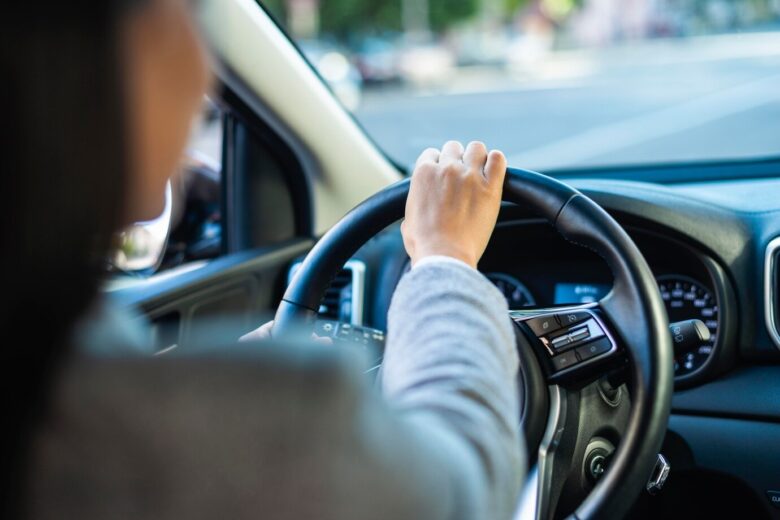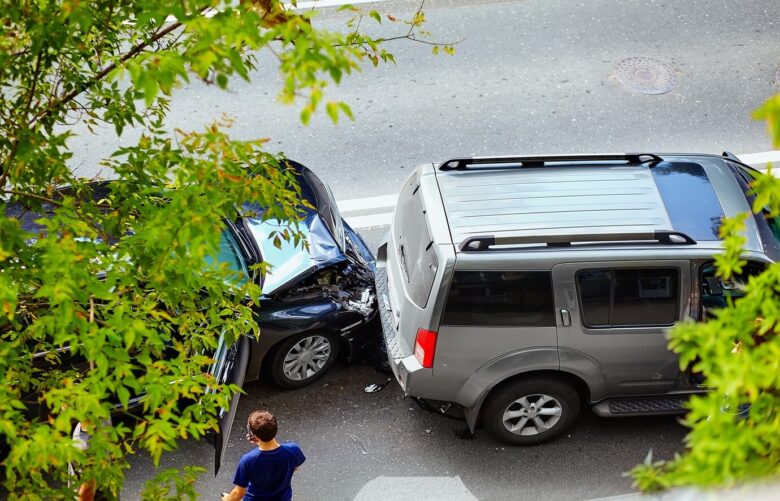From minor fender-benders to life-altering collisions, millions of people find themselves involved in car accidents every year. Whether it was your fault or not, the sudden jolt of being involved in an accident can be stressful and scary. In this article, we will walk you through what happens after a car accident and also provide some tips on how to reduce your risk on the road.
Contents
The Aftermath of an Accident

Source: freepik.com
Immediate Steps After the Crash
In the immediate moments after a car accident, the priority is to ensure the safety of everyone involved. Try to move your vehicle to the side of the road or a safer area to avoid further collisions before you check yourself and others for injuries. Even if injuries seem minor, you should prioritize medical attention as some conditions, such as internal injuries, might not be immediately obvious.
Police and Emergency Services
Next, contact emergency services. Even if the accident appears minor, having the police at the scene is important for documenting the incident and providing an official accident report—which may be required by insurance companies later. Additionally, paramedics can provide immediate medical attention and determine whether anyone needs to be taken to the hospital.
Insurance Process
Be sure to exchange insurance information with the other driver/s or any witnesses involved. Photos of the scene also serve as valuable evidence. Most insurers require you to report the accident as soon as possible. An adjuster from the insurance company will be appointed to investigate the accident, assess the damage, and determine your payout based on your policy.
Legal and Financial Implications
If the accident caused significant damages or injuries, you should consult a lawyer, particularly if there is a dispute about who is at fault. Accident settlement delays can have you at a financial disadvantage, so legal representation is essential to ensure you receive fair compensation. Similarly, you may need a lawyer to help protect your rights if the other party is suing you.
Emotional and Psychological Effects
Aside from the physical and financial aspects, car accidents can also take an emotional toll and affect your daily life. Many people experience anxiety, stress, or even post-traumatic stress after being involved in a serious accident. Remember to acknowledge these feelings and seek help if necessary, whether that be through therapy or support groups.
How to Avoid Car Accidents

Source: freepik.com
Practice Defensive Driving
Defensive driving means being constantly aware of your surroundings and observing the actions of other drivers. For instance, you can maintain a safe distance between your car and the vehicle in front of you to give yourself enough time to react to sudden stops. Being proactive rather than reactive can greatly reduce your chances of being involved in an accident.
Avoid Distractions
Distractions are everywhere—whether it is having a snack, reading a text message, or changing the song on your playlist. Taking your eyes off the road, even for a split second, can lead to dangerous situations. Keep your focus on the road and minimize any distractions inside the car. The best approach is to silence your phone and use hands-free devices when necessary.
Regular Vehicle Maintenance
A well-maintained vehicle is less likely to experience mechanical failures. Make it a habit to check your tires, brakes, lights, and fluid levels regularly. Keeping your tires in good shape is essential for preventing blowouts and skidding. Ensuring that your brakes are functioning correctly is equally important, as they are your primary defense when you need to stop suddenly.
Safe Driving in Adverse Conditions
Poor visibility and slippery roads greatly increase the risk of accidents. Whether you are driving through rain, snow, or fog, you should slow down and increase the distance between your vehicle and others on the road. Make sure to use your headlights appropriately to improve visibility, and if conditions worsen, it may be a better idea to pull over and wait for the weather to improve.
Being Aware of Fatigue and Alcohol
Driving while tired can impair your judgment, slow your reaction time, and increase the likelihood of accidents. Keep an eye out for the signs of fatigue—frequent yawning, difficulty focusing, or drifting out of your lane—and pull over for a power nap. Similarly, never drive under the influence of alcohol or drugs, as that is one of the leading causes of serious accidents.
Using Advanced Safety Features
Modern technology has made cars safer than ever. Features such as automatic emergency braking, lane departure warnings, and blind spot detection can act as an extra set of eyes on the road. These systems can alert you to dangers that you might miss and, in some cases, take corrective action to avoid a collision. Consider buying cars that offer these features.
What to Do If You Witness a Car Accident

Source: freepik.com
While much of the focus is on what happens if you are involved in an accident, many people find themselves in the position of being a witness.
In such a case, the priority is ensuring your own safety and pulling over out of traffic. Next, assess the situation and see if anyone needs immediate assistance. You should offer basic first aid only if you are qualified to do so and call emergency services for any serious injuries. Avoid moving any injured individuals unless they are in imminent danger, such as from a fire.
If you can, offer other forms of help to the people involved. This could mean checking on their well-being, offering to call family members or friends, or simply waiting for help to arrive with them. If it is safe, you can also help to manage traffic around the accident site by using hazard lights or setting up warning signs until the authorities arrive.
Being a witness to an accident also means you may have important information that could be helpful in determining what happened. Be prepared to provide a statement to the police or emergency responders. If you took any photos or videos or noticed specific details like erratic driving before the accident, make sure to share that with the police.
Conclusion
Nobody wants to be caught in a traffic collision, but accidents do happen. Understanding the steps to take after an accident and how to protect yourself can help you be better prepared if the unthinkable occurs. Meanwhile, practicing defensive driving and avoiding distractions are some proactive measures you can take to lower your chances of being in an accident in the first place. Be safe on the roads!
